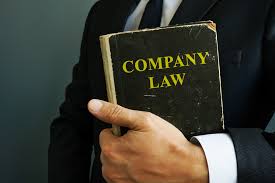Introduction:
 In the complex landscape of UK company law, directors play a pivotal role in steering the course of a business. Understanding directors’ duties is crucial for both legal practitioners and business leaders to ensure compliance and foster a healthy corporate environment. This blog explores the key aspects of directors’ duties and provides insights into resolving disputes that may arise.
In the complex landscape of UK company law, directors play a pivotal role in steering the course of a business. Understanding directors’ duties is crucial for both legal practitioners and business leaders to ensure compliance and foster a healthy corporate environment. This blog explores the key aspects of directors’ duties and provides insights into resolving disputes that may arise.
Directors’ Duties:
1. Duty to Act Within Powers: – Directors must act in accordance with the company’s articles, constitution and exercise their powers for the purposes they were intended.
2. Duty to Promote the Success of the Company: – Directors are obligated to act in a way that promotes the success of the company for the benefit of its shareholders, while considering long-term consequences, employee interests, and other relevant factors.
3. Duty to Exercise Independent Judgment: – Directors must exercise their own independent judgment and avoid conflicts of interest.
4. Duty of Care, Skill, and Diligence: :- Directors are expected to perform their duties with the care, skill, and diligence that would be expected of a reasonably diligent person with their knowledge and experience.
5. Duty to Avoid Conflicts of Interest: – Directors must avoid situations where their personal interests conflict with the interests of the company.
Directors’ Disputes:
1. Communication, Mediation and ADR: – Encouraging open communication is essential. Mediation can be a proactive approach to resolving disputes without resorting to legal proceedings. ADR methods like arbitration or expert determination can provide a more flexible and confidential resolution process compared to traditional litigation.
2. Understanding Corporate Governance: – An in-depth understanding of the company’s corporate governance structure is crucial when addressing disputes involving directors.
3. Legal Remedies: – In cases where disputes escalate, legal remedies such as injunctions or derivative actions may be pursued. Solicitors should guide clients through the complexities of initiating legal proceedings.
4. Reviewing Shareholder Agreements: – Shareholder agreements should be carefully drafted and agreed so each parties’ rights and obligations are transparent.
Conclusion: –
Directors’ duties and disputes require a nuanced understanding of legal principles and corporate dynamics. By navigating these intricacies, we can play a crucial role in ensuring that our clients businesses operate within the bounds of the law, fostering stability and promoting the success of their enterprises. Please feel free to contact us should you be having any issues whatsoever with your fellow directors.


